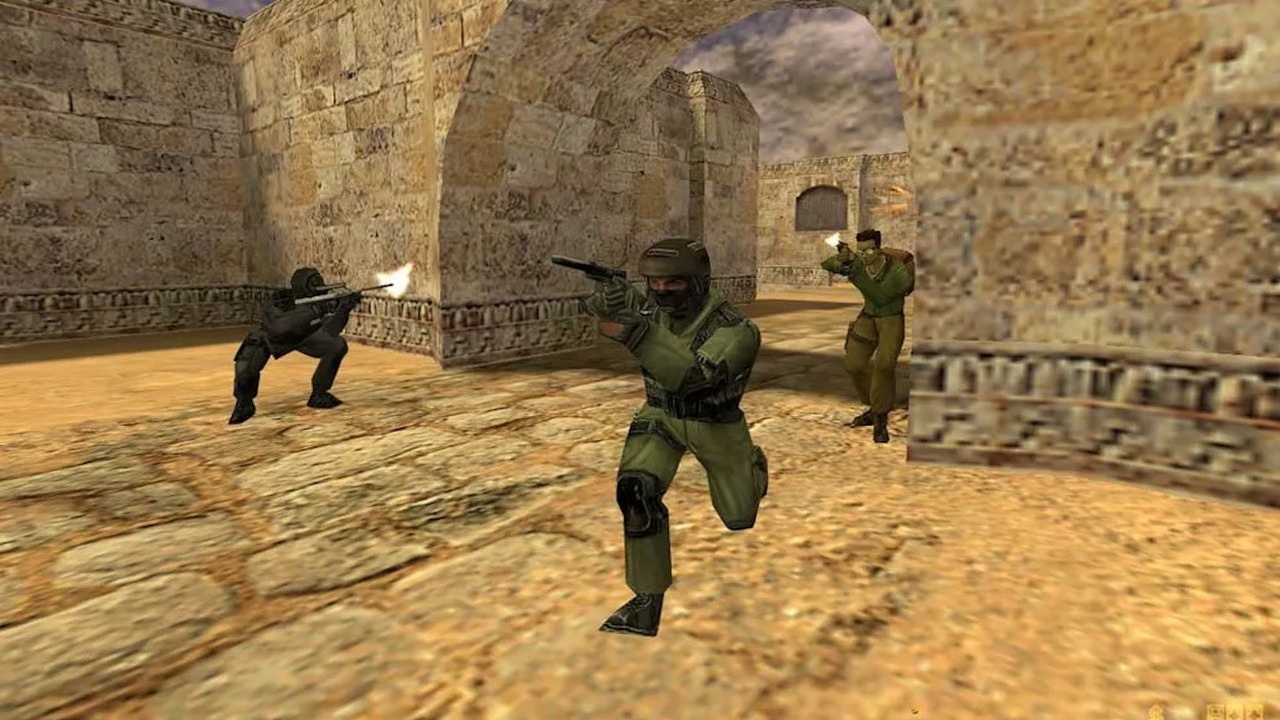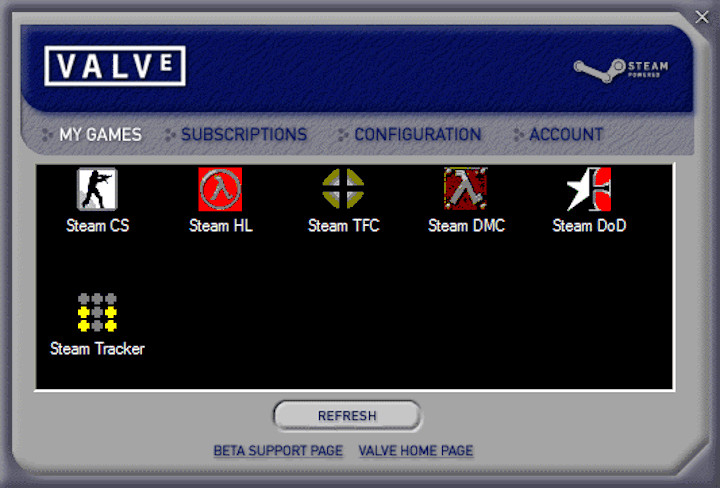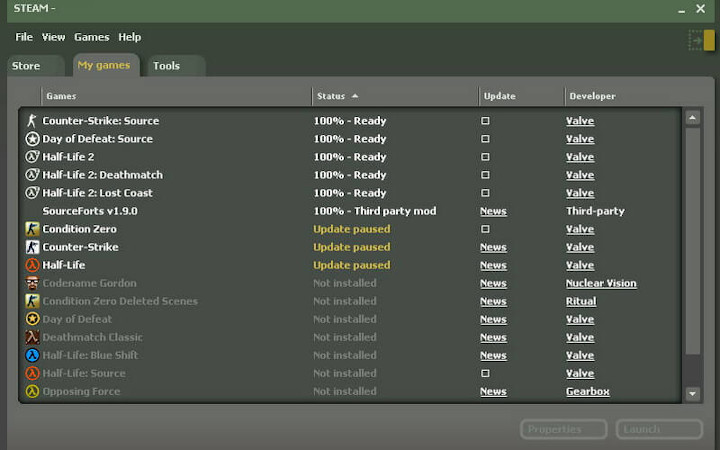20 Years Ago Steam Was Officially Revealed - 'Special Software' Changed PCs
Tuesday marked exactly 20 years since the first announcement of Valve's Steam. It's a good time to reminisce about how this digital distribution platform was talked about back then.

For many gamers, Steam is almost synonymous with PC gaming. The platform is used daily by millions of people around the world who buy games on it and run them through it, collecting achievements, connecting with friends, or installing modifications. But every great thing in the world had a beginning, and that's what we're going to focus on today. This week we celebrated an important anniversary related to the birth of Steam. On March 22 it was 20 years since the first official announcement of this platform.
Valve announces Steam and advertises its pros
The event took place at the GDC 2002 conference (this year's edition is in progress). The announcement was made by Gabe Newell, the CEO of Valve, the company that created Steam and whose products such as Half-Life and Counter-Strike have dominated the platform in the early days. Significantly, the presentation was preceded by a series of closed and semi-public tests (via Shacknews). Below you can see a screenshot of an early version of the client.

Here is how Newell talked about Steam right after its official announcement (via GameSpy):
"Our games use the Internet, but not our business. In the latest survey by Speakeasy, over 75% of players use broadband. We here at Valve decided to build a broadband platform to run our business more efficiently and provide better service to our customers."
(...)
Steam is a broadband business platform. With it, we can market and have direct communication with customers, sales and distribution, and have customer service and support. It uses a high-performance distributed file system for fast, scalable content delivery. You only download what you need and when you need it. It's faster and cheaper than CDs and lastly, no more patches."
The benefits of Steam were also mentioned in the official press release that was sent out to industry media. Let's quote from it (via Blue's News).
"Using Steam-enabled applications, consumers with a broadband connection can purchase and start their applications faster than if they install them from a CD. Users can access their applications from any PC simply by logging into their Steam accounts. Steam’s replication and configuration management tools will eliminate the hassles of dealing with patches and updates. And by eliminating the overhead of physical goods distribution, developers will be able to leverage the efficiency of broadband to improve customer service and increase operating margins."
In addition, Steam was also supposed to make it easier to update GPU drivers, protect against cheats, and even chat with other players in the game. Definitely a "special software".
Gabe Newell on possible publishers and retailers approach to Steam
In the quoted excerpt from the press release, there was talk of reduced costs. In this context, Newell's statement for Shacknews about whether publishers might object to Steam is interesting:
"Well, I'm not going to say that your typical publisher doesn't hope that we fail with this. They'd probably be happy if the broadband genie stayed in that damned bottle for another couple of years. However, publishers have seen this coming and presumably are going to spend more time thinking about how to take advantage of broadband than how to stop broadband.
Shacknews journalist also asked the popular Gaben, how publishers might react to lower prices for games on Steam. Here's what he heard in response:
"Each developer is going to have to make up their own minds how they want to manage the two channels - retail versus broadband. When we are asked by developers about this, we usually say "first, figure out the right thing for your customer and then worry about the retailers." Lots of retailers have already figured out that they need to add some value in the Internet/broadband space.
I think some retailers will be skeptical about the Internet and broadband, but that most of them are already trying to figure out how their business needs to change. I'd expect that several of them will want to figure out how, acting as Steam service providers themselves, they can work with developers. As part of that they are going to say "let's make sure we have a pricing strategy that makes sense retail versus broadband.
A lot of this is going to depend upon how quickly gamers make the transition from physical to broadband delivery of games."
It turned out that they transitioned pretty quickly and Steam managed to establish its place in the market quite efficiently. Gradually, the platform grew into the giant we know today.

What is even more interesting, in an interview with Shacknews Gabe Newell also revealed that he does not rule out, Steam would offer monthly subscriptions to access certain games. However, it was not supposed to replace the traditional sales model. It would be up to the player to decide which option they would choose.
Gamers' memories
But what do gamers think of the announcement and how has it changed their attitude to the platform? Let us quote a few statements of from Reddit.
"It's funny to think of a time where everyone hated steam and preferred to have each game just be able to install by itself," wrote - UltimateWaluigi
"I was one of them, at least when it got announced. i thought mostly about "what if valve goes bankrupt or stops the service? all my games are gone then." I mean I still believe its a real threat, but me and my 1000 games library got used to it.
I also couldn't see me going back to manual installation and patching, omg. Steam in comparsion to other shop system is the closest to an open platform," responded adsci
"I remember not wanting to switch to it since counter strike was a mod that you could play without steam.
Steam has been good to me over the years," wrote de_dust_legend
And you, what are your memories of the announcement and the early days of the Steam platform? Feel free to share them with us and other commenters.
0

Author: Milosz Szubert
A film expert by education. Has been working at Gamepressure.com since January 2017. A fan of tennis, basketball, comics, good books, history, and strategic games by Paradox. Recently a self-taught Game Master (apparently he's quite good at it). For several years, he edited films on the Notatnik Kinomana channel on YouTube.
Latest News
- End of remote work and 60 hours a week. Demo of Naughty Dog's new game was born amid a crunch atmosphere
- She's the new Lara Croft, but she still lives in fear. Trauma after Perfect Dark changed the actress' approach to the industry
- „A lot has become lost in translation.” Swen Vincke suggests that the scandal surrounding Divinity is a big misunderstanding
- Stuck in development limbo for years, ARK 2 is now planned for 2028
- Few people know about it, but it's an RPG mixing Dark Souls and NieR that has received excellent reviews on Steam, and its first DLC will be released soon

